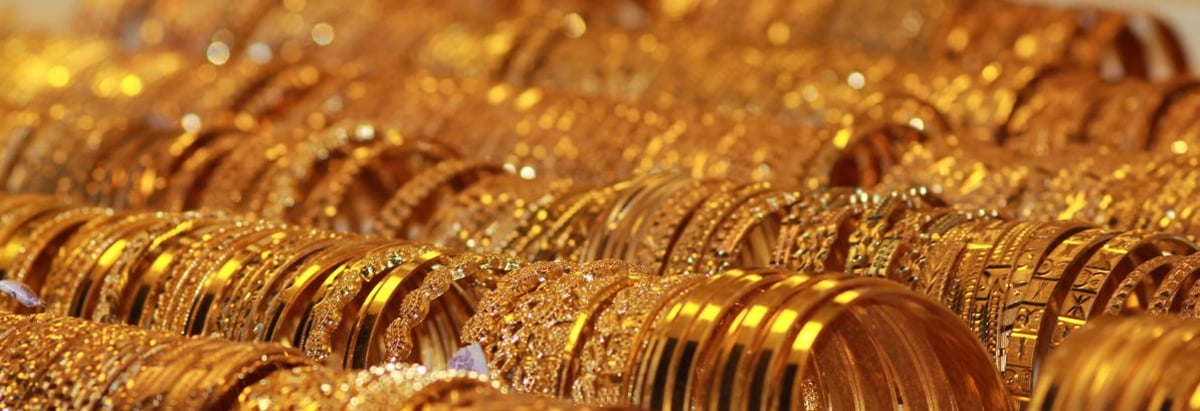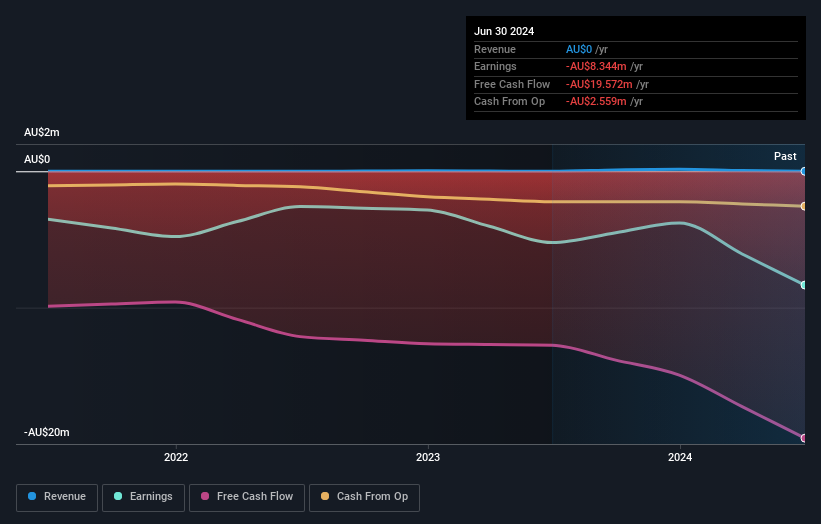- Australia
- /
- Metals and Mining
- /
- ASX:AUC
Institutions profited after Ausgold Limited's (ASX:AUC) market cap rose AU$20m last week but individual investors profited the most

Key Insights
- The considerable ownership by individual investors in Ausgold indicates that they collectively have a greater say in management and business strategy
- The top 25 shareholders own 43% of the company
- Insiders have been buying lately
To get a sense of who is truly in control of Ausgold Limited (ASX:AUC), it is important to understand the ownership structure of the business. And the group that holds the biggest piece of the pie are individual investors with 57% ownership. That is, the group stands to benefit the most if the stock rises (or lose the most if there is a downturn).
While individual investors were the group that benefitted the most from last week’s AU$20m market cap gain, institutions too had a 22% share in those profits.
Let's delve deeper into each type of owner of Ausgold, beginning with the chart below.
Check out our latest analysis for Ausgold

What Does The Institutional Ownership Tell Us About Ausgold?
Many institutions measure their performance against an index that approximates the local market. So they usually pay more attention to companies that are included in major indices.
Ausgold already has institutions on the share registry. Indeed, they own a respectable stake in the company. This implies the analysts working for those institutions have looked at the stock and they like it. But just like anyone else, they could be wrong. If multiple institutions change their view on a stock at the same time, you could see the share price drop fast. It's therefore worth looking at Ausgold's earnings history below. Of course, the future is what really matters.

Hedge funds don't have many shares in Ausgold. Looking at our data, we can see that the largest shareholder is Jupiter Fund Management Plc with 13% of shares outstanding. With 8.1% and 4.7% of the shares outstanding respectively, Dundee Resources Limited and Franklin Resources, Inc. are the second and third largest shareholders. Additionally, the company's CEO Matthew Greentree directly holds 0.7% of the total shares outstanding.
On studying our ownership data, we found that 25 of the top shareholders collectively own less than 50% of the share register, implying that no single individual has a majority interest.
While studying institutional ownership for a company can add value to your research, it is also a good practice to research analyst recommendations to get a deeper understand of a stock's expected performance. Our information suggests that there isn't any analyst coverage of the stock, so it is probably little known.
Insider Ownership Of Ausgold
While the precise definition of an insider can be subjective, almost everyone considers board members to be insiders. Management ultimately answers to the board. However, it is not uncommon for managers to be executive board members, especially if they are a founder or the CEO.
I generally consider insider ownership to be a good thing. However, on some occasions it makes it more difficult for other shareholders to hold the board accountable for decisions.
Shareholders would probably be interested to learn that insiders own shares in Ausgold Limited. In their own names, insiders own AU$15m worth of stock in the AU$176m company. This shows at least some alignment, but we usually like to see larger insider holdings. You can click here to see if those insiders have been buying or selling.
General Public Ownership
The general public, who are usually individual investors, hold a substantial 57% stake in Ausgold, suggesting it is a fairly popular stock. This level of ownership gives investors from the wider public some power to sway key policy decisions such as board composition, executive compensation, and the dividend payout ratio.
Private Company Ownership
We can see that Private Companies own 12%, of the shares on issue. Private companies may be related parties. Sometimes insiders have an interest in a public company through a holding in a private company, rather than in their own capacity as an individual. While it's hard to draw any broad stroke conclusions, it is worth noting as an area for further research.
Next Steps:
It's always worth thinking about the different groups who own shares in a company. But to understand Ausgold better, we need to consider many other factors. For instance, we've identified 3 warning signs for Ausgold that you should be aware of.
If you would prefer check out another company -- one with potentially superior financials -- then do not miss this free list of interesting companies, backed by strong financial data.
NB: Figures in this article are calculated using data from the last twelve months, which refer to the 12-month period ending on the last date of the month the financial statement is dated. This may not be consistent with full year annual report figures.
New: Manage All Your Stock Portfolios in One Place
We've created the ultimate portfolio companion for stock investors, and it's free.
• Connect an unlimited number of Portfolios and see your total in one currency
• Be alerted to new Warning Signs or Risks via email or mobile
• Track the Fair Value of your stocks
Have feedback on this article? Concerned about the content? Get in touch with us directly. Alternatively, email editorial-team (at) simplywallst.com.
This article by Simply Wall St is general in nature. We provide commentary based on historical data and analyst forecasts only using an unbiased methodology and our articles are not intended to be financial advice. It does not constitute a recommendation to buy or sell any stock, and does not take account of your objectives, or your financial situation. We aim to bring you long-term focused analysis driven by fundamental data. Note that our analysis may not factor in the latest price-sensitive company announcements or qualitative material. Simply Wall St has no position in any stocks mentioned.
About ASX:AUC
Excellent balance sheet slight.


